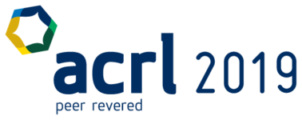Session Description:
Partnerships with departments and outreach to students are key to an academic librarys success. Providing access to immersive Virtual Reality experiences may offer another avenue for libraries to support learning at their institution. We want to share our experience with launching a mobile VR station in our institutions Curriculum Materials Centre (located in the library). We hope to provide a cost-effective model for supporting this emerging technology in a neutral, accessible space.
